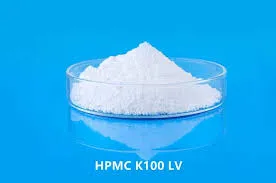
Dec . 04, 2024 18:05 Back to list
hpmc hs code
Understanding HPMC and its HS Code
Hydroxypropyl Methylcellulose (HPMC) is a versatile cellulose ether that is widely used in various industries, including pharmaceuticals, food, and construction. It is a white, odorless powder known for its properties as a thickener, binder, and film-forming agent. In this article, we will explore HPMC, its applications, and its corresponding Harmonized System (HS) code, which plays a crucial role in international trade.
What is HPMC?
HPMC is derived from natural cellulose, which is a component of plant cell walls. By modifying cellulose through hydroxypropyl and methyl substitution, HPMC retains the beneficial properties of cellulose while enhancing its solubility in water. This makes HPMC an ideal ingredient in many formulations.
One of the primary applications of HPMC is in the pharmaceutical industry, where it is used as a controlled-release agent in drug formulations. Its gel-forming properties allow for the sustained release of active pharmaceutical ingredients, enhancing the bioavailability of medications. Additionally, HPMC is utilized as a coating agent for tablets and capsules, providing a protective barrier while facilitating easy ingestion.
In the food industry, HPMC serves as a food additive, providing texture, stability, and moisture retention in various products. It is commonly used in processed foods, sauces, dairy products, and baked goods. Moreover, with the increasing demand for vegan and vegetarian products, HPMC has gained popularity as a plant-based alternative to animal-derived ingredients like gelatin.
In construction, HPMC plays a key role as an additive in cement and mortar formulations. It enhances workability, water retention, and adhesion, leading to improved performance in construction applications. Builders and contractors appreciate HPMC for its ability to extend the open time of mortars, allowing for more extended working periods and better bonding.
The Importance of HS Codes
hpmc hs code

The Harmonized System (HS) is an internationally standardized system of names and numbers used to classify traded products. It was developed by the World Customs Organization (WCO) and is updated periodically to reflect changes in technology and trade patterns. HS codes are essential for customs declarations and tariff assessments, allowing countries to monitor international trade flows and apply appropriate regulations.
For HPMC, the HS code is classified under the broader category of “chemicals and related products.” The specific HS code for Hydroxypropyl Methylcellulose typically falls within the range for organic chemicals. It's crucial for manufacturers, importers, and exporters to accurately determine and use the correct HS code when trading HPMC to ensure compliance with local and international regulations.
Challenges and Considerations
While HPMC offers numerous benefits across various industries, its trade and classification can pose challenges. Each country may have slightly different regulations regarding the import and export of HPMC, making it essential for businesses to stay informed about changes in HS codes and related customs regulations. Additionally, understanding the purity and quality standards for HPMC is vital, as variations can affect its functionality in end products.
The burgeoning demand for HPMC in emerging markets, compounded by a focus on sustainability and environmentally friendly products, may lead to increased competition in global markets. Manufacturers and suppliers must be proactive in their marketing and compliance efforts, ensuring that they can provide high-quality HPMC while navigating the complexities of international trade.
Conclusion
Hydroxypropyl Methylcellulose (HPMC) is a critical ingredient in many industries, offering a range of functionalities and benefits. As the global market for HPMC continues to grow, understanding its applications, as well as the significance of its HS code, becomes essential for businesses engaged in international trade. Accurate classification, compliance with regulations, and quality assurance will be pivotal in capturing opportunities in this dynamic market.
-
Versatile Hpmc Uses in Different Industries
NewsJun.19,2025
-
Redispersible Powder's Role in Enhancing Durability of Construction Products
NewsJun.19,2025
-
Hydroxyethyl Cellulose Applications Driving Green Industrial Processes
NewsJun.19,2025
-
Exploring Different Redispersible Polymer Powder
NewsJun.19,2025
-
Choosing the Right Mortar Bonding Agent
NewsJun.19,2025
-
Applications and Significance of China Hpmc in Modern Industries
NewsJun.19,2025







